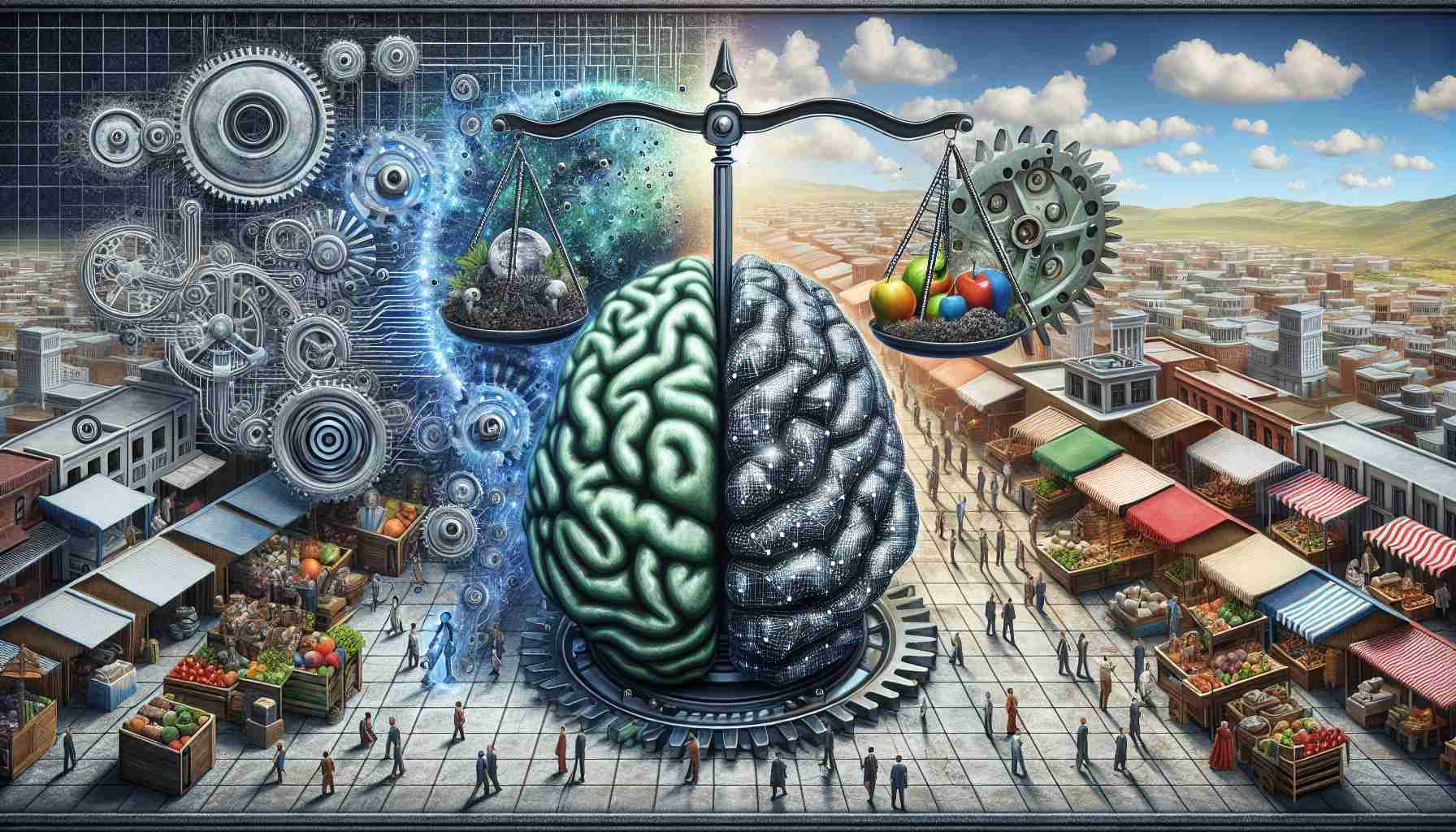The development of artificial intelligence (AI) technology has the potential to bring about significant transformations in various sectors of society and the economy. From education and medicine to finance and agriculture, AI is set to revolutionize the way we live and work.
The European Commission recently called for contributions from interested parties to assess the level of competition in AI and virtual worlds. Telefónica, a leading telecommunications company, shared its perspective on the competitiveness of the AI sector, emphasizing the importance of competition authorities in ensuring fair play for all economic operators.
Will AI Transform Market Competition?
The exact impact of AI on market competition remains uncertain. However, drawing from past experiences in the digital world, it is not challenging to predict that some players might engage in anti-competitive practices that could damage the market and harm consumers. It is crucial to strike a balance between competitiveness, innovation, and responsibility in AI to ensure that the benefits it brings are accessible to all.
Potential Competition Risks in the AI Sector
Access to specific resources and components is crucial for providing generative AI services. Companies that possess these tools may dominate the market and be inclined to impose unfavorable commercial conditions on customers, violating competition rules.
For example, owning a distributed computing infrastructure (cloud) is considered an essential input for developing and providing generative AI services. Developing large language models (LLMs) requires significant investment, making models as a service challenging to create. Additionally, graphics processing units (GPUs) play a crucial role in training and deploying generative AI models. Finally, data forms the foundation for the development and deployment of AI systems, influencing their performance, reliability, and ethical considerations.
If companies controlling these elements refuse access to third parties or charge exorbitant prices for them, competition in the sector is likely to suffer.
Ensuring Fair Competition in AI
Looking at previous European Commission decisions regarding abuse of dominant positions in the digital sector, it becomes apparent that AI could become another realm where dominant companies prioritize their own products and services over those of smaller operators and consumers through “self-preferencing” practices.
These companies might use their dominance in one market to influence adjacent ones, imposing technical conditions for integrating third-party services, making payments conditional on installing their services, or bundling the sale of products together. To prevent such practices, competition authorities must be vigilant.
Compliance with Competition Rules: Unlocking Benefits for All
Despite the risks associated with generative AI, there are numerous benefits to be gained. The challenge lies in ensuring that technological advancements comply with competition law. This will enable society to enjoy a wider array of innovative products and services at better prices and higher quality.
As AI disrupts various markets, it is crucial for all stakeholders to adapt and reform without engaging in anti-competitive practices. While some may believe that certain aspects of life remain beyond AI’s reach, the pursuit of fair play must remain at the core of AI development.
Frequently Asked Questions (FAQ)
1. How will AI influence market competition?
AI has the potential to disrupt and transform market competition. The introduction of AI technology may lead to certain players engaging in anti-competitive behaviors that harm the market and consumers.
2. What are the risks associated with AI in terms of competition?
One of the key risks is the control of essential resources and elements by certain companies. If these companies deny access or charge excessive prices for such resources, it weakens competition in the AI sector.
3. How can fair competition in AI be ensured?
Competition authorities need to monitor and prevent breaches of competition rules in AI. By ensuring compliance with these rules, fair play, innovation, and responsible competition can be upheld.
4. What are the benefits of complying with competition rules in AI development?
Compliance with competition rules allows for a broader range of innovative products and services at better prices and higher quality. It fosters healthy competition and benefits all stakeholders, including consumers.
FAQ
1. How will AI influence market competition?
AI has the potential to disrupt and transform market competition. The introduction of AI technology may lead to certain players engaging in anti-competitive behaviors that harm the market and consumers.
2. What are the risks associated with AI in terms of competition?
One of the key risks is the control of essential resources and elements by certain companies. If these companies deny access or charge excessive prices for such resources, it weakens competition in the AI sector.
3. How can fair competition in AI be ensured?
Competition authorities need to monitor and prevent breaches of competition rules in AI. By ensuring compliance with these rules, fair play, innovation, and responsible competition can be upheld.
4. What are the benefits of complying with competition rules in AI development?
Compliance with competition rules allows for a broader range of innovative products and services at better prices and higher quality. It fosters healthy competition and benefits all stakeholders, including consumers.
Definitions:
– Artificial intelligence (AI): Technology that enables machines to mimic human intelligence and perform tasks such as learning, problem-solving, and decision-making.
– Generative AI services: AI services that create new content, such as language models or graphics, rather than just processing existing data.
– Distributed computing infrastructure (cloud): A network of remote servers used to store, manage, and process data.
– Large language models (LLMs): AI models capable of processing and generating human-like language.
– Graphics processing units (GPUs): Hardware components used to accelerate the processing of graphics and complex calculations.
– Competition authorities: Government agencies responsible for ensuring fair competition in the marketplace.
– Self-preferencing practices: When dominant companies prioritize their own products and services over those of smaller operators and consumers.
– Competition rules: Regulations and laws designed to promote fair competition and prevent anti-competitive behaviors.
Suggested related links:
– European Commission – Artificial Intelligence
– Telefónica (Main Domain)
The source of the article is from the blog windowsvistamagazine.es

